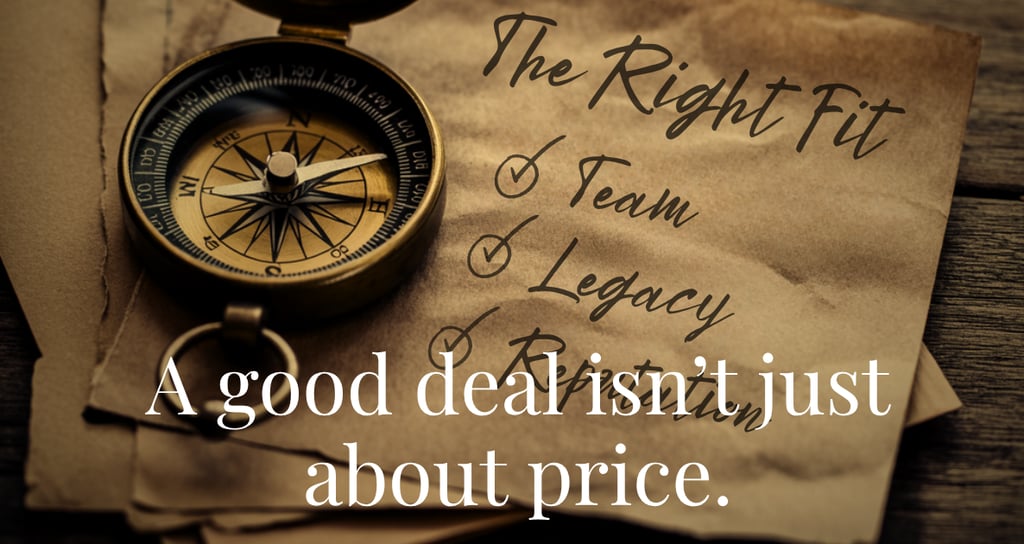The True Meaning of a Good Deal in Business Transactions
Selling your business is rarely just business. For many owners, it’s letting go of something you spent decades building. Your reputation. Your people. Your name.
1 min read


The Importance of Finding the Right Buyer
In today’s competitive market, selling a business is a significant decision that goes beyond mere numbers. A good deal isn’t solely about price; rather, it encompasses the values that both the seller and buyer hold dear. Many sellers prefer to find a buyer who not only values their business but also understands its intricacies and recognizes its potential for future growth.
Respecting Teams and Honoring Legacies
A buyer who truly gets the essence of a business is one who respects its team and honors the legacy built over the years. This respect fosters a smooth transition and continues the positive culture that the seller has cultivated. Selling a legacy business means handing over the reins to someone who cherishes the hard work put into it and is committed to maintaining its spirit. In this light, sellers often prioritize values over valuation, choosing continuity over cash, which can lead to a more satisfying and rewarding transaction.
Why Fit Matters More Than Flash
At Split Pine Group, we recognize that fit is paramount in business transactions. When the alignment between seller and buyer is harmonious, everything else tends to fall into place. We have witnessed firsthand how sellers have turned down lucrative offers that lacked the right fit, opting instead for buyers who share their vision. This foundational compatibility fosters mutual respect and paves the way for sustained success, a crucial aspect that cannot be overlooked in any business sale.
In conclusion, finding the right buyer is more significant than simply achieving the highest price. The essence of a good deal lies in shared values, respect for the team, and honoring the business's legacy. When both sellers and buyers focus on fit rather than flash, they pave the way for lasting success and satisfaction in their transactions. Thus, the decision to sell should echo personal values just as much as financial considerations.
